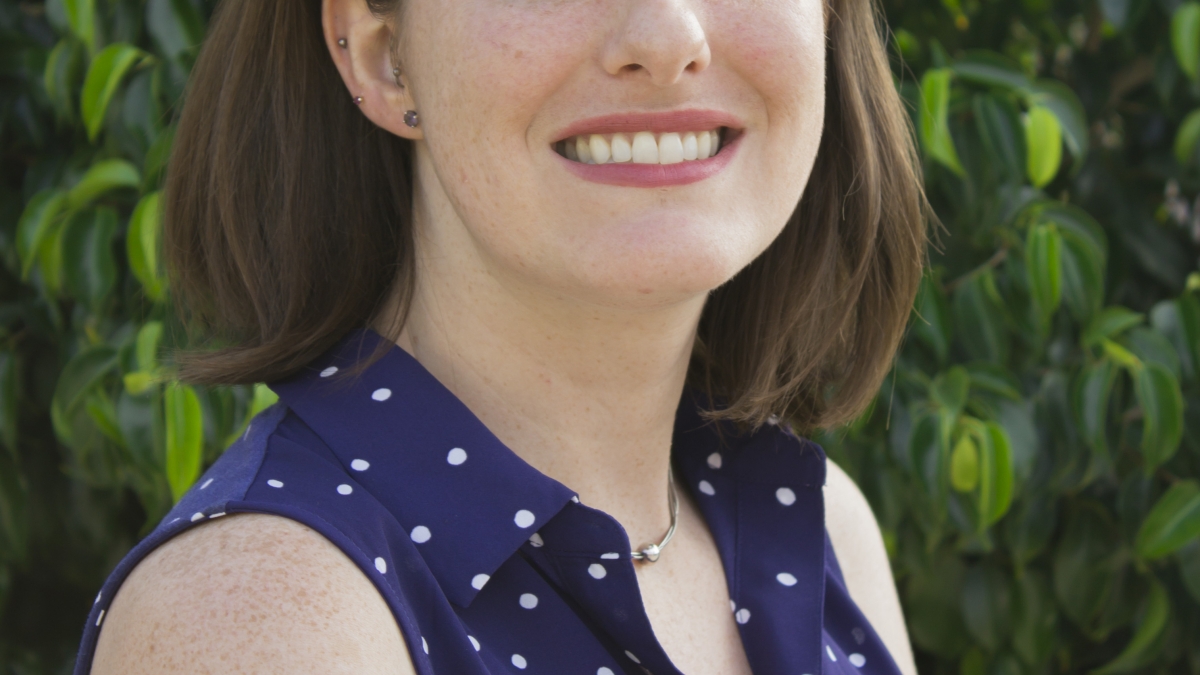Graduate’s love of languages builds multifaceted research, career

Jennifer Byron earned her PhD in Spanish language and cultural studies this spring from The College of Liberal Arts and Sciences' School of International Letters and Cultures.
Editor's note: This is part of a series of profiles for spring 2019 commencement.
Hailing from Sandwich, Massachusetts, a Cape Cod town of about 20,000 people, Arizona State University alumna Jennifer Byron grew up seeing languages as a way to know the world.

“I always wanted to explore more, travel more, and just get to know people,” she said. “By high school, I knew I wanted to continue with languages and keep that passion alive.”
Byron began studying Spanish in middle school, took on French in high school and continued with Spanish language studies and secondary education during her undergraduate years at Marist College.
By the time she came to ASU as a graduate student, she was eyeing Polish, her third language, in honor of her own family’s lineage. Now, with three degrees under her belt, she’s engaging modern language studies from multiple angles.
Byron graduated this spring with a PhD in Spanish language and cultural studies from The College of Liberal Arts and Sciences’ School of International Letters and Cultures. She also holds a master’s degree in Spanish literature and culture from the same school and a certificate in digital humanities.
Byron’s thesis further expanded her study by exploring how technology is shaping women’s literature and art today.
“I looked at work that was specifically digital from writers from Spain, North America and Latin America to see how women use technology to construct and deconstruct identity,” she said. “I also investigated the way social issues like the Me Too movement are being put out on the forefront by women, and how those roles continue to evolve.”
Today, Byron melds her language skills and research to build online materials for young learners all over the world as a Spanish content developer at National Geographic Learning–Cengage in Monterrey, California.
As the world becomes increasingly connected, Byron sees language as a tool to better understand each other.
“In a career sense, learning languages is certainly helpful,” she said. “But we're in a globalized society, so even from a human aspect, we also need to learn in order to communicate with others, create a dialogue, generate empathy and come to solutions.”
Byron answered a few questions about her journey at ASU, her work today and the advice she has for those still in school.
Question: What is something you learned while you were at ASU in the classroom or elsewhere that surprised you or changed your perspective?
Answer: I've met people from so many different backgrounds and walks of life through those experiences — that was very eye-opening. I’m not only referring to the individuals who are my peers in research and teaching, but also the students I had during my two study abroad trips to Seville, Spain.
I also completed internships with the Institute for Humanities Research center and HASTACShort for Humanities, Arts, Science, and Technology Alliance and Collaboratory, HASTAC is a digital and physical center co-founded in 2002 by humanities leadership at Duke University and the University of California in an effort to help humanities studies stay relevant in the digital age. ASU housed the facility between July 2017–Dec 2018.
and attended graduate conferences in Chile, Argentina and Cuba.
I think my experiences in research and internships at ASU really give me a unique perspective and the ability to create materials that are culturally-sensitive and user-friendly.
Q: Why did you choose ASU?
A: When I was looking at graduate programs, I spoke with a professor at Maris College who asked what specific Spanish track I had in mind. I told him I really liked cultural studies that explore not only literature, but also film, technology, digital identity and the performing arts. He suggested I look into ASU because it is known for its cultural studies within language programs. I was accepted for my master’s program, and found I loved it enough to stay for my doctorate.
Q: Which professor taught you the most important lesson while you were at ASU?
A: I've learned something different from every single professor I've had. But I would still have to go back to professor Carmen Urioste-Azcorra. I was her teacher's assistant during my study abroad trips to Spain, and her teaching style taught me a great deal about how to engage my students in unique ways. She employed different digital tools and platforms that made the material super engaging and accessible.
Q: What is the best piece of advice you'd give to those still in school?
A: Look at all of your options and start applying to opportunities right away to prepare yourself for what you're going to do after school. I would say, certainly to follow your passion, but also consider different things you can do with your degree.
Q: If someone gave you $40 million to solve one problem on the planet, what would you tackle?
A: I would use that money to make sure everybody has access to school. Whether in the way of school supplies or something else, I would use it to help make sure that every child has access to education.
More Arts, humanities and education

ASU workshop trains educators, professionals from marginalized communities in disaster science
As devastating as hurricanes can be to anyone caught in their paths, they strike marginalized communities even harder.To address…

ASU’s Humanities Institute announces 2024 book award winner
Arizona State University’s Humanities Institute (HI) has announced “The Long Land War: The Global Struggle for…

Retired admiral who spent decades in public service pursuing a degree in social work at ASU
Editor’s note: This story is part of coverage of ASU’s annual Salute to Service.Cari Thomas wore the uniform of the U.S. Coast…